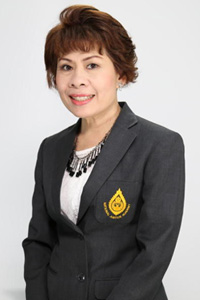
The recent reshuffle seems to have boosted the Yingluck Shinawatra administration's image in the eyes of the public, who see the cabinet as being stronger now than it was before.
After all, it has now been beefed up with veteran politicians from the so-called House No.111 group. Shifting around some ministerial posts has also given the impression that the prime minister is focused on putting the right man in the right job.
Yet, the government remains dogged by old problems, problems that won't go away easily.
The prime minister has not touched the Commerce Ministry, the biggest target of public criticism due to the controversial rice pledging scheme. As a result, the government will face a no-confidence debate at the end of this month.
More importantly, it continues to face mounting public criticism of the scheme which is not only plagued by corruption but also threatens to destroy Thailand's dominance in the overseas rice market.
Prime Minister Yingluck has shown her political leadership in this cabinet reshuffle by not giving in to all requests from family members who tried to influence her decisions. The prime minister succeeded in keeping her own men, namely Finance Minister and Deputy Prime Minister Kittiratt Na-Ranong. Her decision also prevailed in promoting Deputy Transport Minister Chadchart Sittipunt to the role of transport minister. Meanwhile, former Transport Minister Jarupong Ruangsuwan now has the top job at the Interior Ministry. The move won her plaudits for putting the right people in the right job.
During the election of the Pheu Thai Party's new executive committee this week, Mr Jarupong was also elected party leader while Phumtham Wechayachai became the party's secretary-general.
These appointments went according to plan and no one was in for a surprise. Although the two now occupy the top positions in th party, it is only in name. Real power still lies in the hands of de-facto party leader Thaksin Shinawatra. The fact that both men are well-qualified and well-accepted, however, reveals smooth and successful power-sharing within the party.
Mr Phumtham, a former social activist, belongs to the so-called October generation. His expertise in mass mobilisation will serve his party well, especially in its plan to expand its membership to surpass the one million mark within this year.
Each MP in Pheu Thai is also required to increase the number of party members in their jurisdiction. This membership expansion is part of Pheu Thai's strategy to secure enough support to change the constitution, one of its election promises.
The government's supporters have slammed the current charter as the product of a coup-installed parliament.
As leader of the coalition government, Pheu Thai has set up a joint committee to rewrite the charter. The move, however, is in limbo following the Constitution Court's ruling barring the drafting of an entirely new constitution.
The court is also against setting up a charter drafting assembly without public approval via a referendum. Since the current charter was endorsed by a national referendum, any change must be backed by public endorsement too, or so so goes the court's rationale.
It is expected that the government will soon make it clear how it will tackle the legal obstacles to push charter change through parliament.
With conflicting opinions inside the Pheu Thai Party, it has taken the charter change joint committee several months to decide on a solution. One group is of the opinion that the government should just move ahead for the third round of parliamentary voting to approve charter amendment and to set up the drafting committee to rewrite the constitution section by section. They believe the court's legal interpretation is only advice, and is not compulsory.
This opinion clashes with another camp, which believes Pheu Thai should strictly follow the Constitution Court's ruling in order to avoid the risk of party dissolution for a third time.
Noppadon Pattama, legal adviser to Thaksin Shinawatra, belongs to this camp. He does not believe Pheu Thai should take the Constitution Court's ruling lightly while the political environment remains so highly divided.
And if the majority in the government wants to push through charter change, they still have to take into consideration the prime minister's readiness, he said.
After all, it is Prime Minister Yingluck who has to officially present a new charter for royal endorsement. There is a risk that there might be another petition for a new round of legal rulings from the Constitution Court, Mr Noppadon said, adding: "If the court rules that the new charter drafting is unconstitutional, who will be responsible for the damage?"
"Although charter change was one of the key promises in the 2011 election, although it was one of the urgent policies in the government's declaration to parliament and although the government really wants to make the highest law more just, we must accept that we cannot ram through the drafting process in an urgent manner. There is a need for a roadmap," he said.
Those who wish to push through charter change have confidence in popular support for the Pheu Thai-led government. But the anti-government camps also command hefty popular backing, attested by the Siam Pitak political rally over the weekend.
Twenty thousand people turned up at the rally, showing they are ready for another mass protest.
They are just waiting for the spark that will make their frustrations explode. And if that is the way events unfold, then the new cabinet might find itself facing some unnecessary threats to its existence.
Nattaya Chetchotiros is Assistant News Editor, Bangkok Post.
